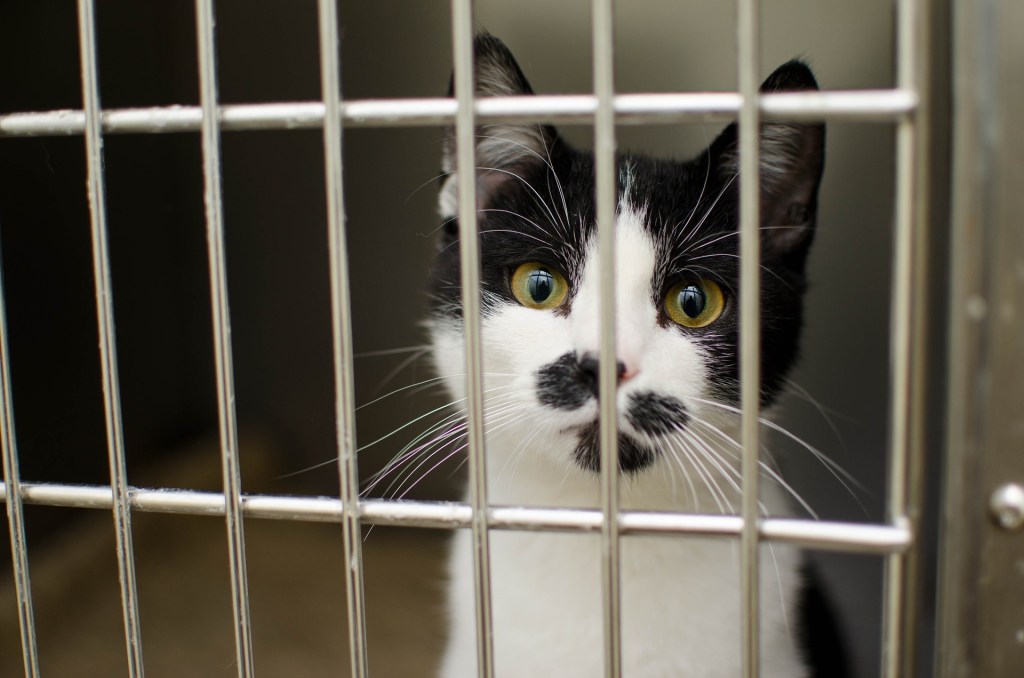If you’re looking to add a feline family member to your home, cat adoption is a great option. Before adopting a cat, you might make a list of local animal shelters and humane societies that you should go visit. But you could be leaving out one potential adoption source: nonprofit animal sanctuaries. While sanctuaries don’t traditionally do adoptions, they do provide long-term homes for special cats, dogs, and other animals. If you do have the opportunity to meet, bond with, and then adopt a cat from a sanctuary, you’ll be supporting an important cause and just might find your new best friend.

The difference between humane societies/rescues and animal sanctuaries
Animal sanctuaries and rescues, like humane societies, are often confused, and in today’s society, many publications and organizations use the terms interchangeably. It’s important to understand some key differences, though.
According to the Regional Animal Protection Society, humane societies and rescues or shelters function as temporary homes for animals. The animals in these facilities may have been surrendered, rescued while loose, or even removed from a neglectful or abusive situation. These operations work to minimize the amount of time that animals spend in the facilities. Some animals are fostered out quickly so they can live in a home-like environment until they’re rehabilitated or otherwise prepared for adoption. Other animals may be able to be adopted out almost immediately.
Shelters can have a no-kill policy. According to PAWS Chicago, a no-kill shelter typically avoids euthanizing more than 90% of the animals that it takes in. No-kill shelters euthanize pets who are unable to be rehabilitated and adopted out. In contrast, open-door or traditional shelters may euthanize animals who have treatable conditions or who are even healthy in an effort to manage the shelter population and be able to take in additional animals.
In contrast, animal sanctuaries offer animals a forever home, states the Regional Animal Protection Society. The animals who find refuge at shelters often aren’t likely to be adopted out elsewhere. These animals might have behavioral issues, but many also have serious health problems, such as leukemia or diabetes. With care, the cats can have long lives, but they might get passed over again and again in a shelter. Animal sanctuaries provide a safe place where these animals can live out their lives. They may be staffed by employees and/or volunteers who ensure the cats receive plenty of attention and love.

The benefits of sanctuary cat adoption
The Regional Animal Protection Society explains that it’s uncommon for sanctuaries to adopt out cats, but it can happen. While any sanctuary cat will have a home for life at the sanctuary, if the perfect adoption opportunity arises for a cat, a sanctuary might allow that adoption. Often, that arises when a staff member or volunteer bonds strongly with a cat. Since that person already works closely with the cat, they’ll have an understanding of the unique and often intensive care that the cat requires.
If you do encounter a situation where you’re able to adopt from a sanctuary, you’ll be opening up a spot in that sanctuary for another cat who might not be adopted through a traditional shelter or humane society. Sanctuaries have limited budgets, so they can only care for so many cats at a time. If you adopt a cat, that sanctuary could take in another cat who might otherwise be euthanized in another setting. You’ll also be ensuring that your adopted cat and the cat who takes its place will have lifelong, caring homes, and you’ll be helping to save two lives.
The decision to adopt a cat from a sanctuary should not be taken lightly. It’s important to consider how you can meet the cat’s unique needs, both now and in the future as your family and living situation evolve. Keep in mind that cats with health issues cost more to care for than healthy cats, and if you’re adopting a young cat, you could be looking at significant costs across the cat’s lifetime. Whether you decide to adopt from a sanctuary or from a humane society, you’ll still be helping a cat in need. What’s most important is that you adopt a cat who’s the right fit for your family and whose needs you can meet for the rest of its life.


